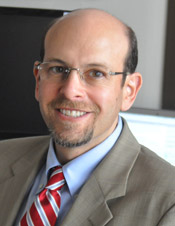We are sharing news that our friend, Geoffrey Nagle, has been named president and CEO of the Erikson Institute. Geoff served as a member of the Partnership’s Board for many years and truly has been the architect of the good early childhood work that has taken place in our state for the last decade. We will miss him. Here’s the link to the full news release: http://www.erikson.edu/news/geoffrey-nagle-named-president-of-erikson/
I know I speak for so many in our state in thanking Geoff for his leadership and congratulating him on this new and exciting endeavor. We wish him and his family the best!
Sherry Guarisco,
Louisiana Partnership for Children & Families
Geoffrey A. Nagle named president of Erikson
November 25, 2013
Geoffrey A. Nagle, a leader in early childhood policy and research, has been named president and CEO of Erikson Institute, effective January 1, 2014.
He also will hold the Irving and Neison Harris President’s Chair.
“Geoff is an innovative 21st century leader who will help guide Erikson undefined and the entire early childhood field undefined to new levels of influence and impact,” says Kate Neisser, chair of the Board of Trustees and member of the search committee. “His presidency will build on Erikson’s history of leadership, while also extending its entrepreneurialism in the service of children and families.”
Nagle is currently the director of the Tulane Institute of Infant and Early Childhood Mental Health and associate professor of psychiatry and behavioral sciences at the Tulane University School of Medicine. He is also a licensed clinical social worker.
A record of success

President Geoffrey Nagle
While at Tulane, Nagle worked closely with Louisiana government leaders to strengthen the state’s early childhood system and expand high-quality early care and education. His advocacy resulted in Quality Start, Louisiana’s child care quality rating system, and laws creating the Early Childhood System Integration Budget and School Readiness Tax Credits.
He is a prolific researcher, focusing on the economic benefits of prevention and the influence of early childhood research on public policy decisions. Additionally, Nagle’s deep social work experience will help inform the launch of Erikson’s M.S.W. degree program in 2014.
Nagle succeeds Samuel J. Meisels, who ended his 11-year presidency in June to become the founding executive director of the University of Nebraska’s Buffett Early Childhood Institute. Since June, professors Barbara Bowman and Frances Stott have served as interim co-presidents.
“Geoff’s record of successfully advocating for some of the most vulnerable children and families makes him an exceptional choice for Erikson,” says Bowman, who also is a co-founder of Erikson. “Geoff understands and embodies Erikson’s founding commitment to help all children, regardless of their background, reach their potential.”
Introducing President Geoffrey Nagle
A native of New York City and raised in Connecticut, Nagle studied political science at Duke University. Drawn to the promise of creating social change through mass media, he worked for five years in the film industry in Los Angeles. Looking to work more directly with children, he then traveled to Central and South America to serve as an English teacher and volunteer with orphaned and sick children.
Inspired by his experiences, Nagle returned to the U.S. to pursue a Master of Social Work and a Master of Public Health from Tulane University. While working for the Louisiana Office of Public Health, he completed his doctoral work at Tulane in mental health policy research, an interdisciplinary degree that combined social work, biostatistics, and epidemiology.
“I am excited to join the talented students, researchers, educators, alumni, and trustees of the Erikson community,” says Nagle. “Now is a moment of change and opportunity as the nation continues to examine the policies and programs that will impact children from birth to 3rd grade, and even beyond. Together, we will continue leading innovative change for our nation’s most precious asset, our children.”
Nagle and his wife, Gabriela, have two children, Jake (13) and Juliana (4).